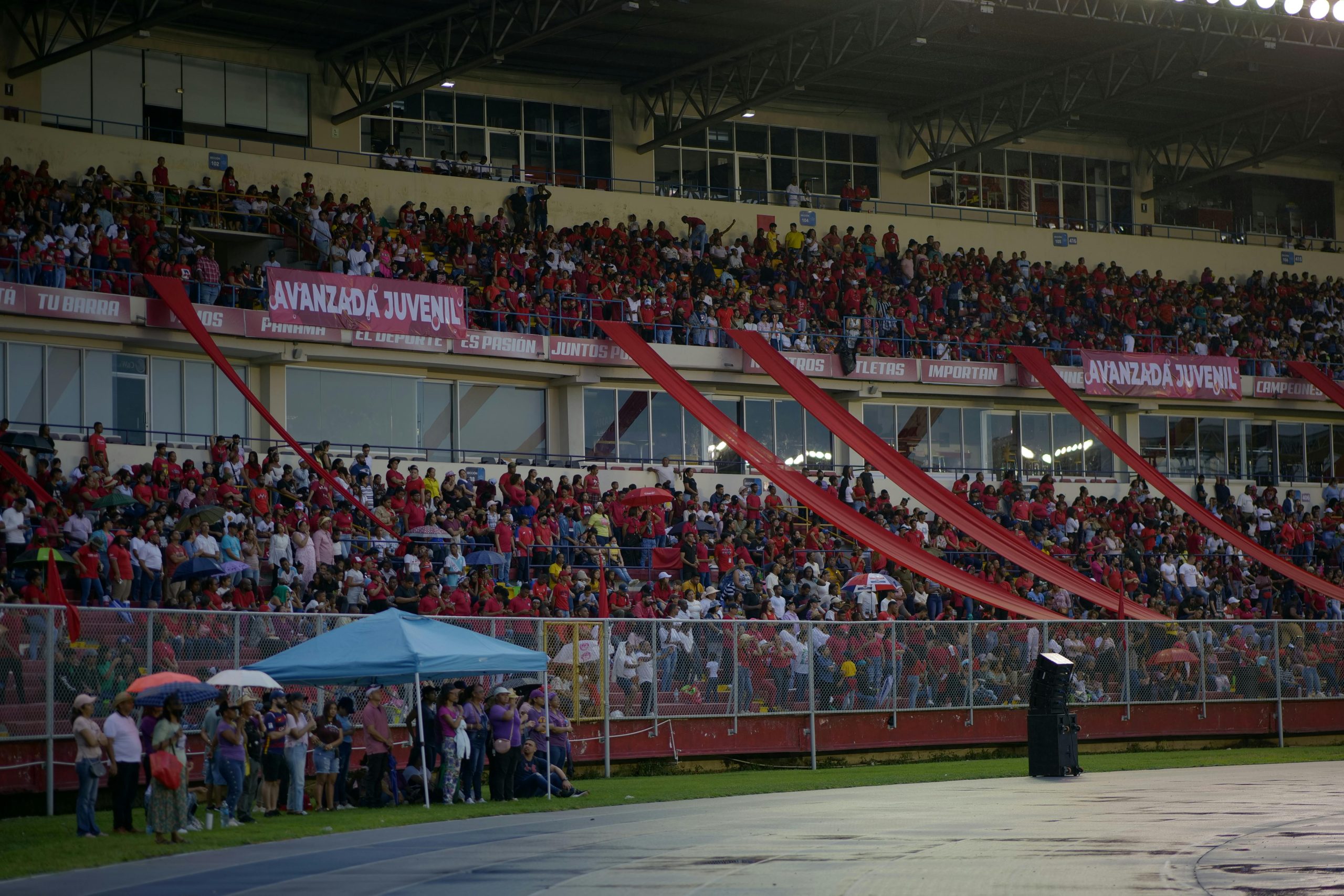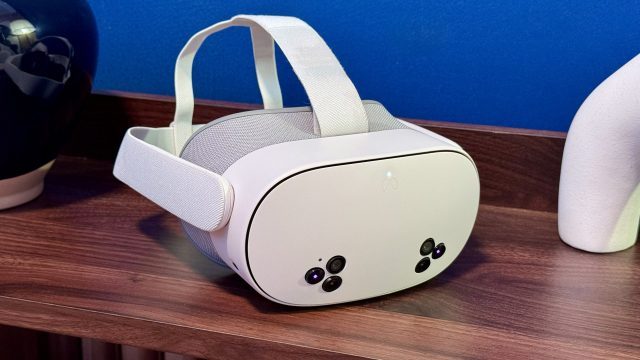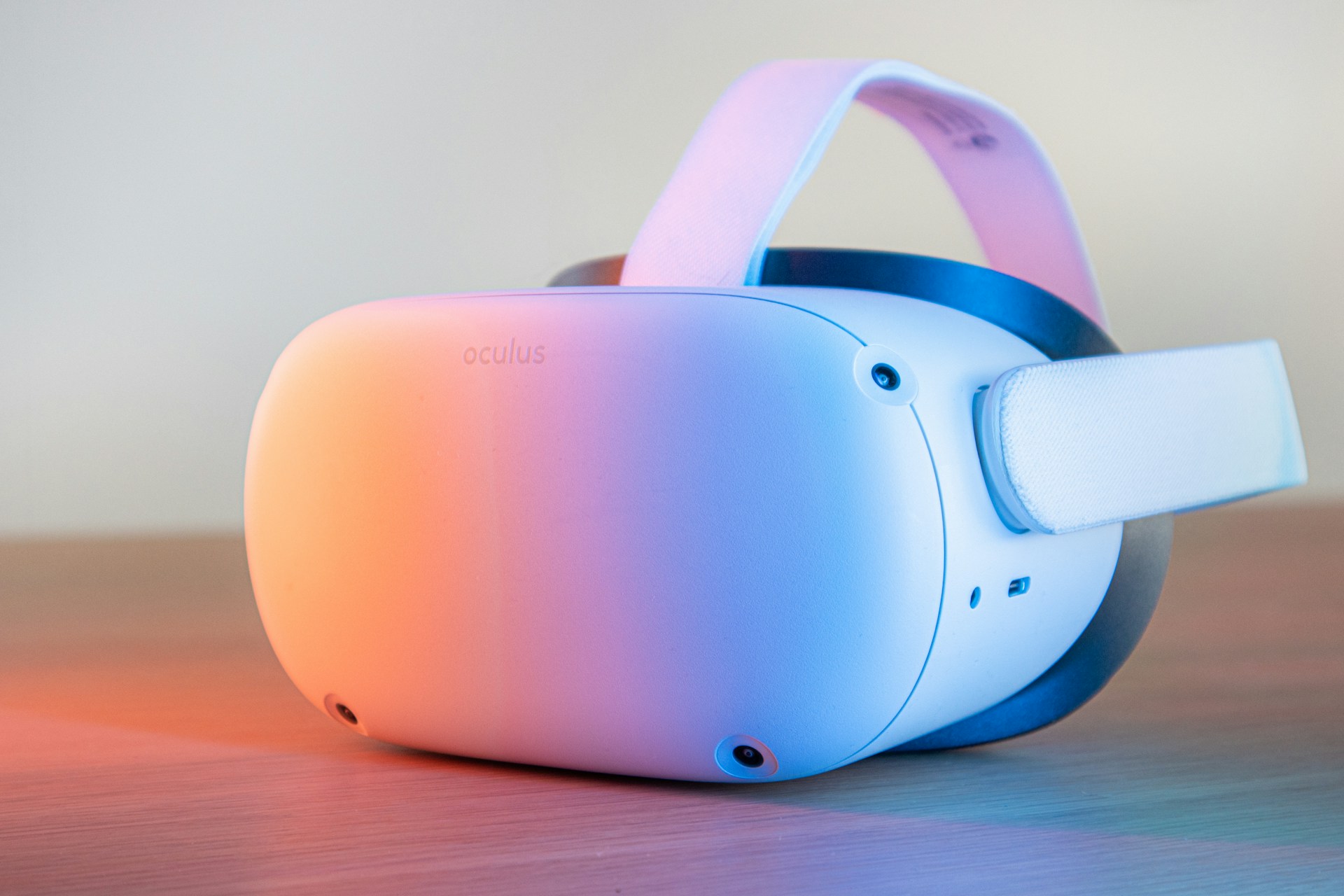The Rise of Virtual Reality in Live Events
Virtual Reality (VR) has been making significant waves in the realm of live events, revolutionizing the way audiences engage with their favorite sports games, concerts, and other live experiences. By immersing viewers in a digital world that feels incredibly real, VR technology has the power to transport fans to the heart of the action like never before.
As more and more event organizers embrace VR, we are witnessing a shift towards more interactive and engaging experiences for attendees. With the ability to create virtual spaces that mimic the atmosphere of live events, VR is offering a new dimension of access and excitement, bringing a level of immersion that was previously unimaginable. The rise of VR in live events is not just a trend but a fundamental transformation in how we perceive and participate in the events we love.
Enhancing Fan Experience Through VR Technology
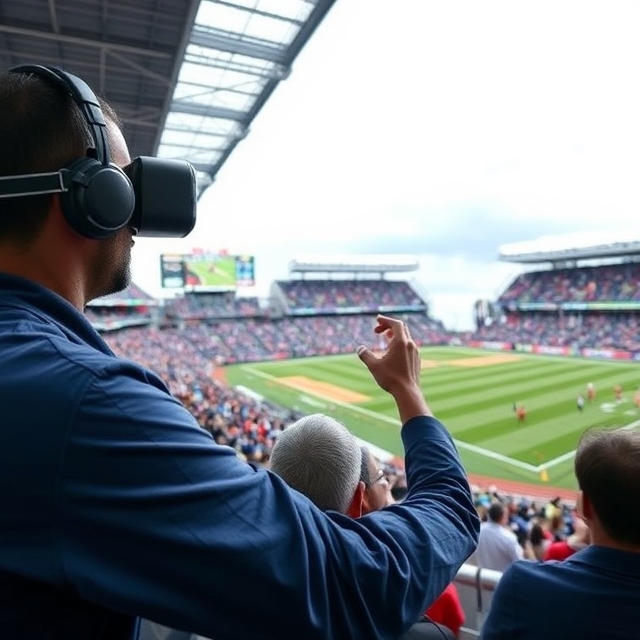
Virtual Reality (VR) technology has revolutionized the way fans experience live events, offering a level of immersion and interactivity never before possible. By putting on a VR headset, fans can transport themselves into the heart of the action, whether it’s a front-row seat at a concert or a courtside view of a basketball game. This level of realism and presence creates a truly unforgettable experience for fans, allowing them to feel like they are part of the event in real-time.
Moreover, VR technology has the power to enhance fan engagement by providing unique perspectives and behind-the-scenes access. Fans can enjoy exclusive content, such as backstage footage or player warm-ups, giving them a more comprehensive understanding of the event. This added layer of interaction helps to deepen fan connection with the event and the performers or athletes involved, creating a more meaningful and memorable experience overall.
Bringing Sports Games to Life in Virtual Reality
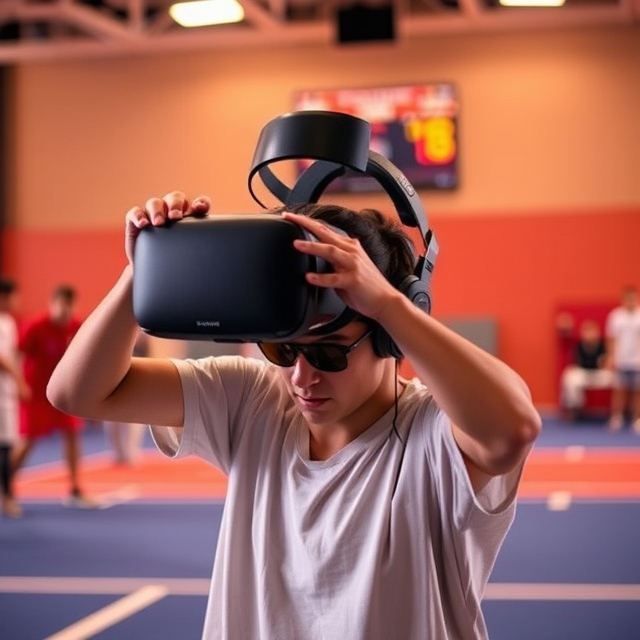
Immersing fans in the heart of the action, virtual reality technology is revolutionizing the way sports games are experienced. Through VR, spectators can step into the shoes of their favorite athletes, feeling the pulse-pounding energy of the game like never before. The detailed graphics and sensory feedback of virtual reality transport viewers from their living rooms straight into the stadium, offering a truly immersive and interactive sports-watching experience.
With virtual reality, fans are no longer just passive observers but active participants in the game. The ability to switch perspectives and explore different angles in real time enhances the overall viewing experience, putting the power in the hands of the viewer. By bringing sports games to life in virtual reality, the technology is not only transforming how fans engage with their favorite teams but also setting a new standard for what it means to truly experience the thrill of live events.
Immersive Concert Experiences with VR
Concerts have always been about creating unforgettable experiences for fans, and virtual reality (VR) technology is taking this to a whole new level. By donning a VR headset, concert-goers can transport themselves to the front row of a live performance from the comfort of their own home. They can feel the energy of the crowd, see the sweat on the performer’s brow, and almost reach out to touch the stage in a way that was never before possible.
In addition to bringing the concert experience to those who are unable to attend in person, VR allows fans to access exclusive content and behind-the-scenes footage that adds another dimension to their enjoyment. From intimate backstage moments to 360-degree views of the venue, VR is revolutionizing the way fans interact with their favorite artists and enhancing the overall concert experience in ways that were once unimaginable.
Virtual Reality: A Game Changer for Live Events
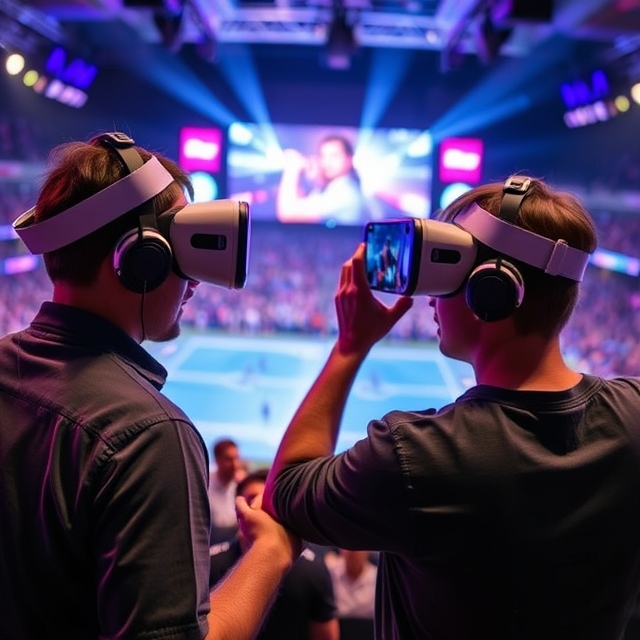
Virtual Reality (VR) is revolutionizing the live events industry by offering attendees a truly immersive and dynamic experience. Through VR technology, event organizers can transport fans to virtual worlds where they can interact with their favorite performers or athletes in ways never before possible. By putting on a VR headset, audiences can feel as though they are right in the front row of a concert or on the field during a sports game, creating a level of engagement that surpasses traditional event experiences.
Moreover, VR has the potential to break down geographical barriers and make live events accessible to a global audience. With VR, fans from around the world can tune into a live event and feel as though they are physically present, regardless of their physical location. This opens up new avenues for event organizers to expand their reach and connect with fans in a more intimate and inclusive way, ultimately reshaping the landscape of live entertainment.
The Evolution of Live Event Technology
Live event technology has undergone a remarkable evolution in recent years, with virtual reality (VR) emerging as a game-changing innovation in engaging audiences like never before. By seamlessly blending the physical and digital realms, VR has transformed how live events are experienced, offering attendees a heightened level of immersion and interactivity. From sporting events to concerts, VR has opened up a new dimension of possibilities for live event organizers to captivate audiences and create unforgettable experiences.
Furthermore, the integration of VR technology into live event venues has revolutionized the way organizers plan and execute events. With the ability to create virtual reality spaces, organizers can now offer attendees unique and tailored experiences that were previously unimaginable. This level of personalization and customization not only enhances the overall event experience but also attracts a wider audience demographic, ensuring that live events remain relevant and appealing in an ever-evolving technological landscape.
VR’s Impact on Ticket Sales for Live Events
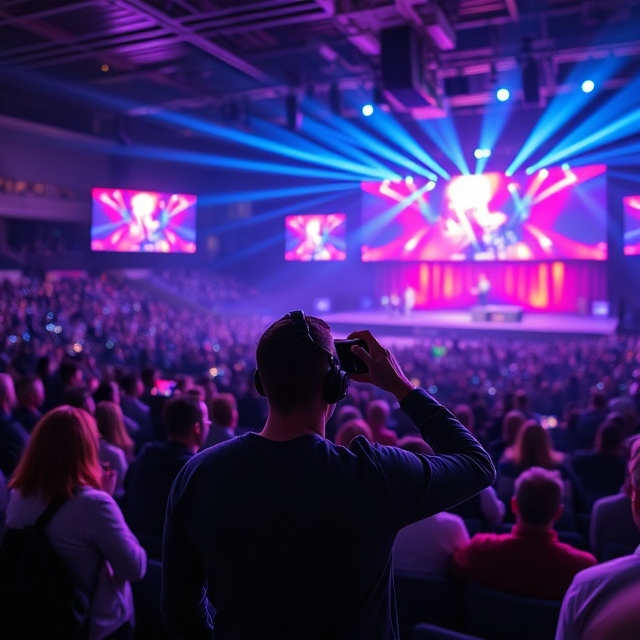
Virtual Reality (VR) technology has significantly influenced ticket sales for live events in recent years. By offering virtual experiences of event venues, organizers have managed to create a sense of anticipation and excitement among potential attendees. Through VR, fans can explore the layout of the venue, view different seating options, and even preview the view from various sections. This immersive experience not only generates hype but also helps in converting potential attendees into actual ticket buyers.
Moreover, VR has also played a crucial role in expanding the reach of live events beyond physical limitations. With the ability to live stream events in virtual reality, organizers can attract a global audience that might not have been able to attend in person. This accessibility has led to increased ticket sales as fans from around the world can now participate in the event virtually, experiencing it as if they were present at the venue itself. The convenience and novelty of virtual reality experiences have proven to be a game-changer in the live events industry, influencing ticket sales and audience engagement positively.
Creating Virtual Reality Spaces for Live Events
Virtual reality has opened up a whole new world of possibilities for creating immersive spaces at live events. Organizers are leveraging VR technology to transport attendees to virtual realms that enhance their overall event experience. By integrating VR spaces into live events, attendees are given the opportunity to explore interactive environments that blur the lines between the physical and digital worlds.
These virtual reality spaces not only provide a novel and engaging experience for attendees but also offer event organizers a platform to showcase creative and innovative ideas. From virtual stages for concerts to simulated sports arenas for gaming events, the potential for creating unique and memorable experiences is boundless. As VR technology continues to advance, we can expect to see even more intricate and captivating virtual reality spaces at live events in the future.
The Future of Live Event Production with VR
The integration of virtual reality (VR) technology into live event production is revolutionizing the way audiences engage with and experience events. Through VR, event organizers have the opportunity to transport attendees into immersive and interactive worlds, creating a sense of presence and connection like never before. From sporting events to concerts, VR offers a new dimension of engagement that enhances the overall event experience.
As VR continues to advance and become more accessible, the future of live event production looks promising. With the ability to customize and tailor experiences to meet the specific needs and preferences of audiences, VR has the potential to attract a wider range of attendees and create meaningful interactions that leave a lasting impact. The evolution of live event technology with the integration of VR is reshaping the landscape of event production, offering endless possibilities for creating unique and unforgettable experiences for attendees.
Virtual Reality: The Ultimate Access Pass to Live Events
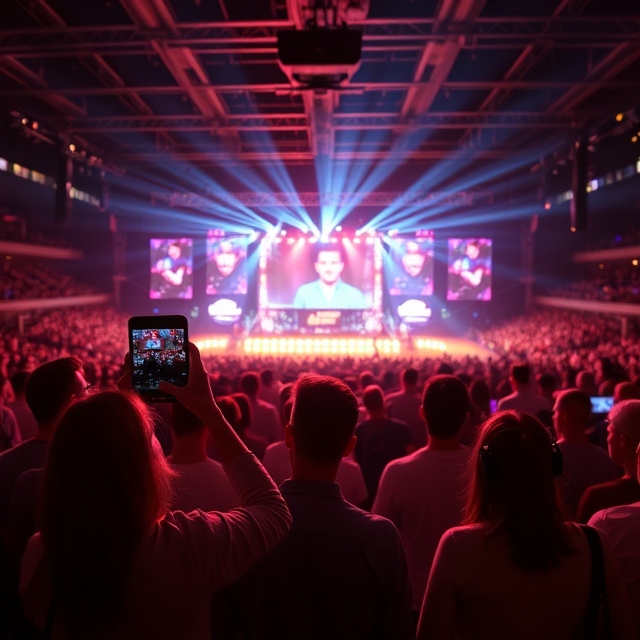
Imagine being able to attend your favorite live events from the comfort of your own home, all thanks to virtual reality technology. With VR, fans can immerse themselves in the action as if they were right there in the crowd, cheering along with thousands of others. The ability to have a front-row seat at a concert or sports game, without physically being present, opens up a whole new world of possibilities for event-goers.
Virtual reality not only provides access to live events for those who may not be able to attend in person due to distance or other limitations, but it also offers a completely unique and interactive experience. Attendees can explore virtual venues, interact with other fans, and feel the excitement of being part of the event in real-time. This cutting-edge technology is revolutionizing the way we attend live events, breaking down barriers and bringing people together in ways never thought possible before.
How VR is Revolutionizing the Way We Experience Sports and Concerts
With virtual reality technology advancing rapidly, the way we experience sports and concerts is undergoing a significant transformation. VR has opened up new possibilities for fans to immerse themselves in the action from the comfort of their own homes. Through VR headsets, viewers can feel like they are right in the stadium or concert venue, providing a more interactive and engaging experience.
For sports enthusiasts, VR offers the opportunity to watch games from various angles, giving them a 360-degree view of the action. This technology allows fans to feel like they are on the field or court, enhancing the overall experience. Similarly, in the realm of concerts, VR can transport viewers to the front row, allowing them to feel the energy of the performance in a way that was never before possible. The ability to experience these events in a more immersive manner is revolutionizing the way fans connect with their favorite sports teams and musicians.
Engaging Fans in a New Dimension with Virtual Reality
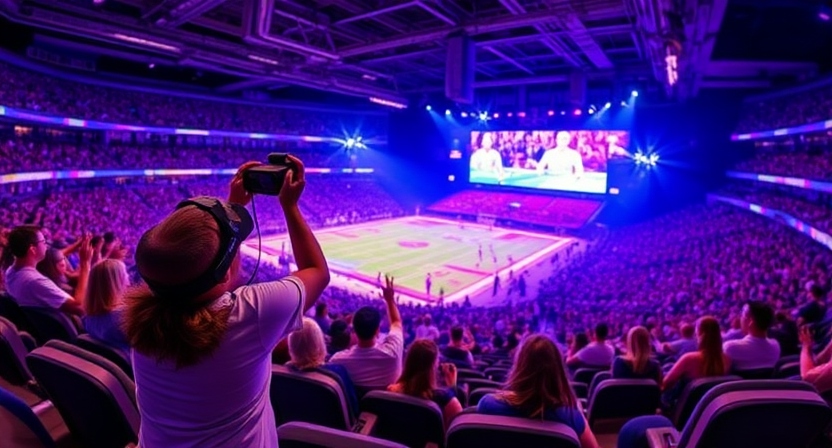
With the rise of virtual reality (VR) technology, live events are entering a new era of fan engagement. Through immersive VR experiences, fans can now feel like they are right in the heart of the action, whether it’s a sports game or a live concert. By donning VR headsets, audiences can enjoy a front-row seat from the comfort of their own home, or even experience events that they may not have been able to attend in person.
Furthermore, VR offers a new dimension of interactivity for fans, allowing them to participate in live events in ways never before possible. Fans can feel like they are part of the show, interacting with their favorite artists or athletes in real-time. This level of engagement not only enhances the overall fan experience but also creates a deeper connection between fans and the event itself.
The Role of VR in Redefining Live Event Marketing
Virtual Reality (VR) technology has started to transform the landscape of live event marketing. With VR, event organizers can provide potential attendees with immersive previews of what their events have to offer. By giving people the opportunity to virtually explore event venues, experience interactive demos, or even engage with virtual event hosts, VR opens up a new realm of possibilities for marketing live events.
Moreover, the use of VR in live event marketing allows organizers to reach a broader audience beyond geographical limitations. Through VR experiences, individuals from around the world can participate in events, breaking the barriers of distance and making it possible for more people to engage with the event content. This expanded reach not only increases event attendance but also enhances the overall marketing impact of live events in the digital age.
Integrating VR Technology into Live Event Venues
As technology continues to advance, the integration of virtual reality (VR) into live event venues is becoming increasingly common. By incorporating VR technology, event organizers are able to offer attendees a more immersive and interactive experience. From sports games to concerts, VR allows fans to feel like they are right in the middle of the action, creating a sense of presence that traditional viewing experiences cannot match.
One of the key benefits of integrating VR technology into live event venues is the ability to attract a wider audience. VR offers a unique opportunity for individuals who are unable to physically attend an event to still participate and feel a part of the excitement. This can help increase ticket sales and engagement, as well as provide a new revenue stream for event organizers. Additionally, the interactive nature of VR can enhance the overall fan experience and keep attendees coming back for more.
The Benefits of Virtual Reality for Live Event Organizers
Virtual Reality technology offers a myriad of benefits for live event organizers. One of the key advantages is the ability to expand the reach of events beyond physical limitations. By offering a virtual experience, organizers can attract a global audience without the constraints of venue capacity or geographical barriers. This can lead to increased ticket sales and a broader fan base for live events.
Additionally, Virtual Reality enhances engagement and immersion for attendees, providing a unique and memorable experience. By incorporating VR technology into live events, organizers can create interactive and personalized experiences that captivate audiences and leave a lasting impression. This can help in building brand loyalty and attracting repeat attendees to future events.
Enhancing Live Event Streaming with Virtual Reality
Virtual reality (VR) has revolutionized the way live events are streamed, offering viewers a truly immersive and engaging experience from the comfort of their own homes. By integrating VR technology into live event streaming, audiences can feel as though they are front and center at the event, giving them a sense of being part of the action in real-time. This level of immersion allows viewers to explore different vantage points, from the stage at a concert to the sidelines of a sports game, providing a dynamic and interactive viewing experience unlike any other.
Not only does VR enhance the visual aspect of live event streaming, but it also elevates the audio experience, creating a more authentic and encompassing atmosphere for viewers. The spatial audio technology used in VR allows audiences to hear the sounds of the event as if they were physically present, enhancing the overall sense of immersion and realism. This multi-sensory approach to live event streaming not only appeals to a wider audience but also sets a new standard for how we perceive and engage with virtual content in the digital age.
Virtual Reality: A New Frontier for Live Event Sponsorship
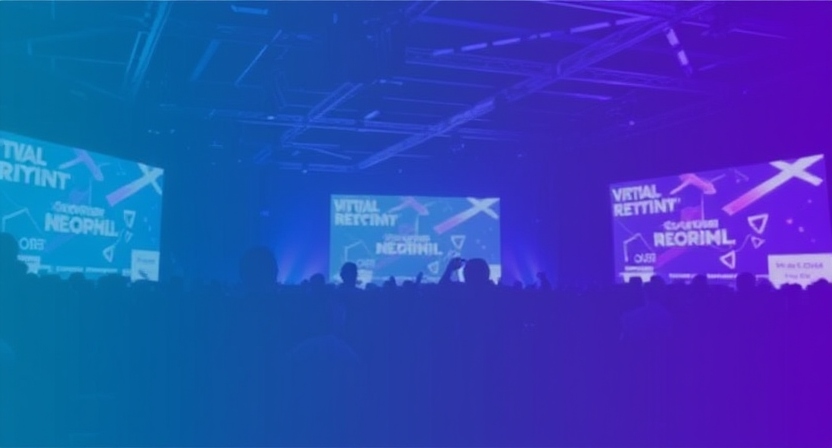
Virtual reality (VR) has emerged as a groundbreaking platform for sponsors to engage with audiences in live events like never before. By integrating VR technology into event sponsorship strategies, brands are able to create immersive and interactive experiences that resonate with attendees on a whole new level. Through VR, sponsors have the opportunity to transport event-goers into a virtual world where they can interact with products, participate in brand activities, and forge meaningful connections with the sponsoring companies. This level of engagement not only increases brand visibility but also fosters a deeper sense of brand loyalty among consumers.
Moreover, VR offers sponsors the ability to track and analyze real-time data on audience behaviors and interactions within the virtual environment. This invaluable data provides sponsors with insights into audience preferences, engagement levels, and overall response to their sponsorship activations. By understanding these metrics, sponsors can tailor their strategies to effectively target and engage with their desired demographic, ultimately maximizing their impact and return on investment in live event sponsorships.
Exploring the Potential of VR for Interactive Live Events
Virtual reality (VR) technology has opened up a world of possibilities for interactive live events, offering a level of engagement and immersion that was previously unimaginable. By using VR headsets, attendees can transport themselves to virtual venues where they can interact with the environment and other participants in real time. This level of interactivity creates a sense of presence and connection that enhances the overall live event experience for users.
One of the key potentials of VR for interactive live events lies in its ability to break down physical barriers and bring people together regardless of their geographical location. With VR technology, attendees can participate in live events from the comfort of their own homes, eliminating the need for travel while still enjoying a sense of community and collective experience. This not only expands the reach of live events but also provides a more inclusive and accessible platform for individuals to engage with content and connect with others in a virtual space.
Virtual Reality: Transforming the Way We Attend Live Events
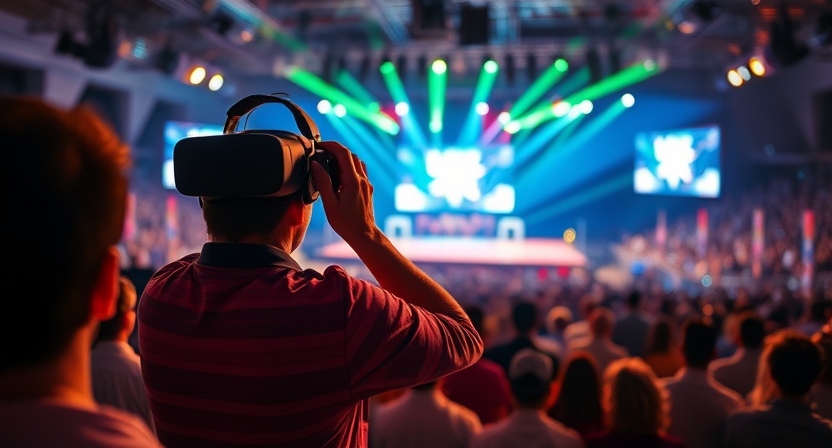
The integration of virtual reality (VR) technology into live events has revolutionized the way attendees experience concerts, sports games, and other entertainment gatherings. By putting on a VR headset, event-goers can transport themselves to the front row of a concert or get a courtside view of a basketball game, all from the comfort of their own home. This immersive experience allows fans to feel like they are truly part of the action, enhancing their overall enjoyment and engagement with the event.
Moreover, VR has opened up new possibilities for event organizers to create unique and interactive experiences for their audiences. From virtual meet-and-greets with artists to behind-the-scenes tours of venues, VR offers a new dimension of engagement that was previously unimaginable. As technology continues to advance, the potential for VR to transform live events into fully immersive and interactive experiences is only increasing, making it an exciting frontier for the future of event attendance.
The Challenges and Opportunities of Implementing VR in Live Events
Implementing virtual reality (VR) technology in live events presents both challenges and opportunities for event organizers. One of the primary obstacles is the cost associated with incorporating VR elements into the event experience. From purchasing VR equipment to developing immersive content, the financial investment can be significant. Additionally, ensuring a seamless integration of VR technology with existing event logistics and infrastructure can be a complex task that requires thorough planning and coordination.
On the other hand, the integration of VR in live events opens up a world of opportunities for enhancing audience engagement and creating unforgettable experiences. VR technology allows event organizers to transport attendees to virtual worlds, offering a new level of immersion and interactivity that traditional events cannot match. By leveraging VR, organizers can attract a broader audience, including tech-savvy individuals who are eager to explore innovative event experiences. Moreover, VR can provide a platform for sponsors to engage with attendees in unique and creative ways, opening up potential revenue streams for event organizers.

